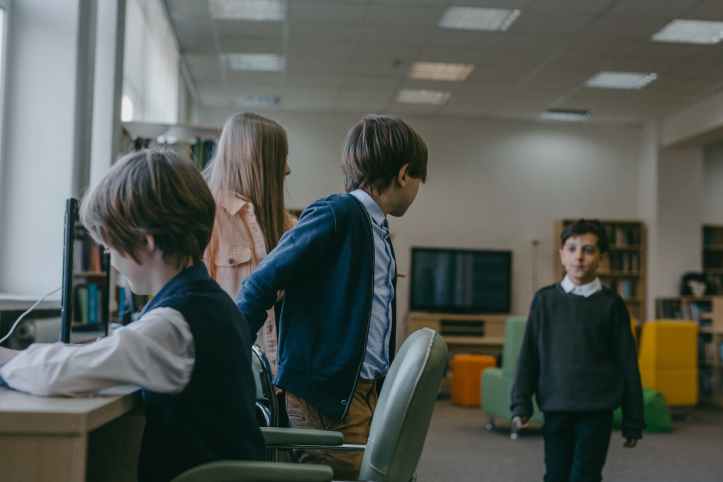The modern world is a fast-paced, constantly changing, and often overwhelming place to live. With the rise of technology, social media, and the pressure to succeed, it’s no wonder that more and more people are feeling disoriented in their daily lives. Disorientation can take many forms, from forgetfulness and confusion to struggling to coordinate basic tasks. This phenomenon affects people of all ages, genders, and backgrounds, and can be caused by a wide range of factors. In this article, we’ll explore the concept of disorientation in the modern world, its causes, and how to cope with it.
Curiosity Trend
Podcast form of the Article , You can Play along while reading in case if you struggle to focus.

As we navigate through the 21st century, it’s hard to deny that we live in a time of unprecedented change and uncertainty. We are bombarded with information from all directions, and it’s easy to feel overwhelmed and disoriented. From the constant pressure to succeed to the never-ending flood of social media notifications, it’s no wonder so many people feel lost and confused. But why is disorientation so prevalent in today’s world, and what can we do about it?
The answer lies in the very fabric of modern society. Our world is increasingly complex and interconnected, and as a result, we are exposed to a never-ending stream of information, opinions, and expectations. We are bombarded by advertisements telling us what we should buy, social media posts telling us how we should look, and news articles telling us what we should think. It’s no wonder so many people feel overwhelmed and disoriented by the sheer volume of information they are exposed to.
Furthermore, we live in a time of great social and political upheaval. The traditional structures that once gave us a sense of stability and belonging, such as family and community, have eroded. As a result, many people feel disconnected and alone, which only exacerbates their sense of disorientation.

One major cause of disorientation in the modern world is social pressure. Whether it’s pressure to fit in with a certain social group, pressure to succeed in a career, or pressure to live up to family expectations, social pressure can be overwhelming. This pressure can lead to feelings of anxiety, stress, and even depression. For example, a student who feels pressure from their family to get good grades may struggle with disorientation due to the stress and anxiety they feel about their performance.
Another factor that can contribute to disorientation is alcohol or drug use. Substance abuse can impair cognitive function, making it difficult to concentrate, remember details, and coordinate basic tasks. This can lead to a host of issues, from forgetfulness to accidents and injuries. For example, someone who regularly drinks to excess may struggle with disorientation in their daily life, making it difficult to perform even simple tasks like remembering appointments or driving safely.

The rise of social media and the digital age is another major contributor to disorientation in the modern world. With constant access to news, information, and entertainment, it can be challenging to focus on the present moment. Additionally, social media can create a sense of pressure to keep up with friends and acquaintances, leading to feelings of inadequacy and anxiety. For example, someone who spends hours scrolling through their social media feeds may struggle with disorientation due to the constant bombardment of information.

In addition, the constant use of social media can lead to decreased attention span and lower ability to focus. Social media platforms are designed to keep users engaged, and they do so by constantly offering new content to view. This can lead to a constant need for stimulation and a decreased ability to concentrate for extended periods of time.

A sedentary lifestyle is yet another factor that can contribute to disorientation. Many jobs today require individuals to sit for long periods of time, and when combined with leisure activities such as watching TV or playing video games, this can lead to a lack of physical activity.Lack of physical activity can lead to a host of health issues, including obesity, heart disease, and even cognitive decline. This can have negative effects on both physical and mental health, including decreased energy levels and difficulty concentrating.For example, someone who spends all day sitting at a desk may struggle with disorientation due to the lack of physical activity and stimulation.

Finally, the high level of competition in modern society can also contribute to disorientation. The pressure to succeed and meet high expectations can lead to feelings of inadequacy and a lack of direction. This can lead to individuals feeling overwhelmed and unsure of how to move forward in their personal and professional lives.
To illustrate the effects of disorientation in the modern world, let us consider a few Hypothetical life examples:
- A young adult named Riya is a recent college graduate who has just entered the workforce. She is struggling to adapt to the fast-paced nature of her new job and the high expectations of her employer. She is also trying to balance her social life and maintain a healthy lifestyle. This has led to her feeling disoriented and unsure of how to move forward.
- David is a middle-aged man who has been working in the same job for over 20 years. He has become complacent and is no longer motivated by his work. He spends most of his free time watching TV and has become increasingly sedentary. He is beginning to experience health problems and is feeling disoriented and unfulfilled in his life.
- Emilia is a teenager who spends most of her free time on social media. She is constantly scrolling through her feeds and feels a constant need for stimulation. She is having difficulty concentrating on her schoolwork and is falling behind in her classes. She is feeling overwhelmed and disoriented about how to get back on track.
In addition to these factors, disorientation can also be caused by a range of mental health issues, including anxiety, depression, and ADHD. Negative thought patterns, lack of purpose or direction, and a general feeling of being overwhelmed can all contribute to disorientation. For example, someone who struggles with anxiety may find it difficult to focus on tasks or remember details due to the constant worry and stress they feel.

But the good news is that there are things we can do to overcome disorientation in today’s world. The first step is to recognize that we are not alone in our struggles. Many people feel lost and confused, and it’s important to reach out and connect with others who are going through similar experiences. This can be as simple as joining a support group or talking to friends and family.

Second step is to identify the underlying cause or causes. This may require seeking professional help from a therapist or counselor. Cognitive-behavioral therapy, mindfulness-based stress reduction, and dialectical behavior therapy are all effective treatments for disorientation caused by mental health issues.
In addition to seeking professional help, there are also several self-help strategies that can be effective in coping with disorientation. These include mindfulness meditation, regular exercise, a healthy diet, and self-care activities like yoga or massage. These can be helpful in quieting the mind and finding a sense of calm amidst the chaos.. It’s also important to set realistic goals and expectations, and to prioritize self-compassion and self-acceptance. By taking care of your physical and emotional well-being, you can improve your ability to focus, remember details, and coordinate tasks.

Most important step is to take a step back from the constant barrage of information and stimuli. This means setting boundaries around our use of technology and social media, and creating space in our lives for quiet reflection and introspection.

Say NO to Social Media
To Summarize, disorientation in today’s world is a common experience, but it’s not something we have to accept as inevitable. By recognizing the root causes of our confusion and taking concrete steps to address them, we can overcome disorientation and find clarity and fulfillment in our lives. Whether it’s through mindfulness practices, connecting with others, or seeking professional help, there are many paths to healing and growth. By taking the first step, we can begin the journey towards a more centered and fulfilling life.
Next article in the series : The Overload of Social Pressure: How It Affects Our Minds and Lives – Lost in Chaos P2
Our team in constantly working towards providing you research and facts based perspective of numerous topics. To get Regular updates and To be a part of On going Article Series, You can Follow and Subscribe us on https://curiositytrend.com/
In case if you are planning to start a baby step from today, Here you go …
